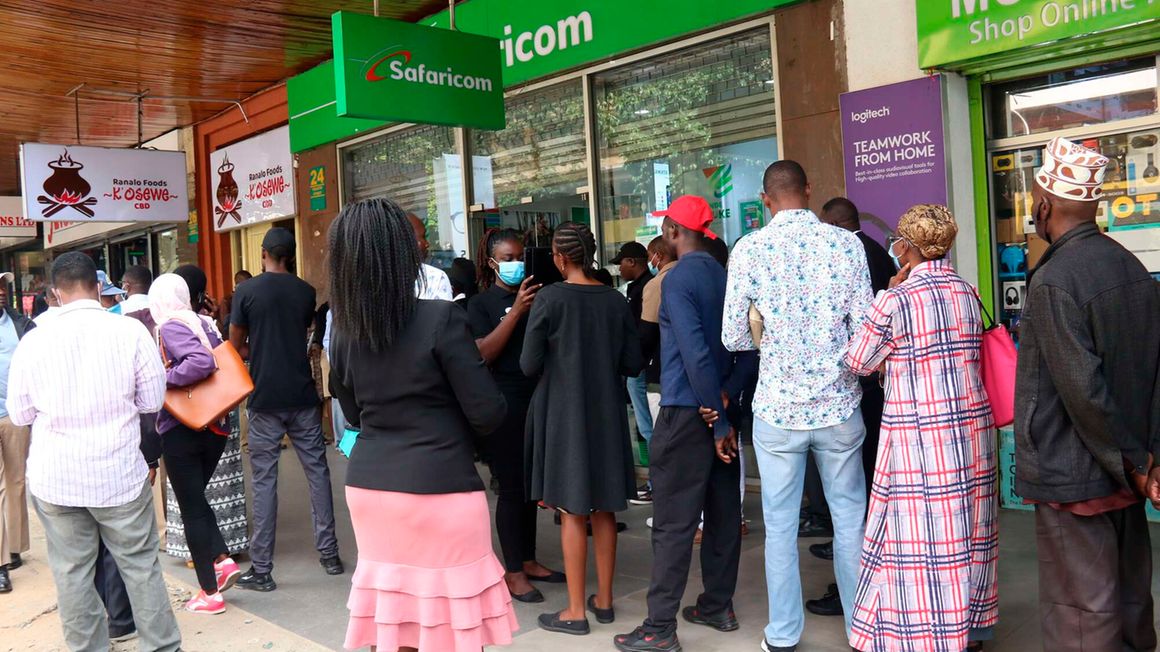
City residents queue outside a Safaricom shop along Kimathi Street, Nairobi on April 7, 2022. PHOTO | LUCY WANJIRU | NMG
Retail investors bought an additional 51.9 million shares of Safaricom valued at Sh890 million at the current price in the 15 months to June 2023, taking advantage of
the telco’s falling share price and a willingness by foreign investors to let go of the stock.The company’s shareholder register as of June shows that the category of investors holding between one and 100,000 shares accounted for 1.166 billion shares, up from 1.114 billion in March 2022.
Read: Safaricom share price dynamics
The number of investors in this category, who form the bulk of holders of the stock, remained largely unchanged in the period, falling by just 58 to 532,870.
This pointed to accumulation by existing investors, rather than new ones joining and taking fresh positions on the counter.
Over a longer period, their numbers have dropped significantly, having stood at 822,122 in March 2009, a year after the telco’s IPO.
Investors holding between 100,000 and one million shares also added to their stockholding by 80.8 million units to end June at 508.1 million shares, with their number also rising by 310 to 1,907.
There was, however, a drop in both numbers and volume of shares among those holding between one and 10 million shares, which points to foreign investors selling to local retailers.
This category let go of 138.4 million units in the period, taking its holding down to 1.608 billion from 1.746 billion. The number of investors meanwhile dropped by 25 to 492 in this category.
Safaricom is the largest listed firm on Nairobi Securities Exchange (NSE) by market capitalisation, number of investors and issued shares, making it accessible to both retail and institutional investors across a wide range of ownership bands.
The company’s IPO in 2008 saw 896,213 new brokerage accounts opened as retail investors lined up to take a slice of the telco.
This more than doubled the number of accounts at the Nairobi Securities Exchange (NSE) to 1.7 million, with small investors applying for 22.6 billion units of the telco’s shares or 464 percent of what was allocated for them.
Many of these buyers had hoped for a repeat of the KenGen debut experience in 2006 when the energy firm’s shares doubled their IPO value.
The price, however, remained below the IPO value for the better part of five years, until a rally from late 2013 unlocked higher valuations, which rose to as high as Sh44.50 per share in 2021.
Read: Safaricom, KCB shares among 1.2bn unclaimed
The share price rally encouraged selling by small investors seeking to lock in their gains, with their shares getting snapped up by institutional buyers including local and foreign insurance companies, pension funds, and investment firms, which have longer holding periods that allow them to ride out bear markets and earn dividends over the years
→ cmwaniki@ke.nationmedia.com




No comments :
Post a Comment